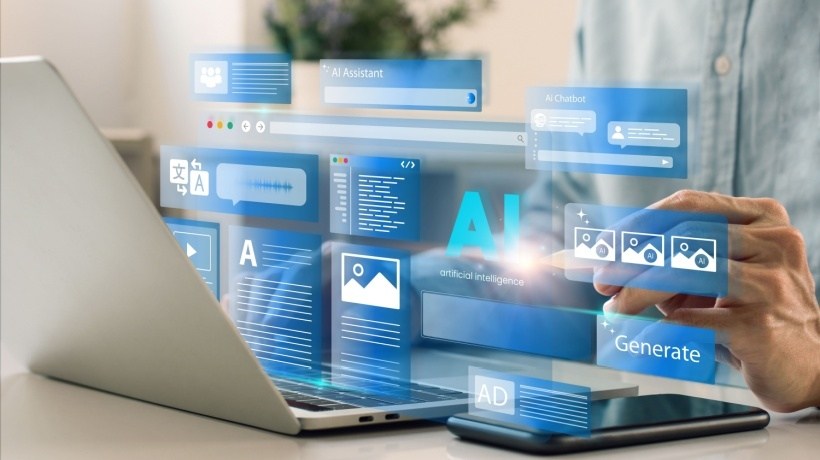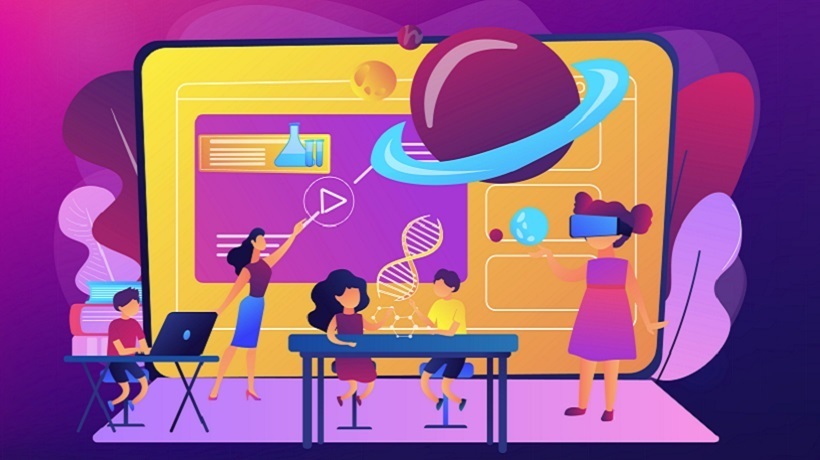Maximizing Corporate Learning With AI, LMS, And HR
In today's rapidly changing business environment, organizations need to provide their employees with continuous learning opportunities to stay competitive. Learning Management Systems (LMSs) have been widely adopted by organizations as a platform for delivering online learning programs to their employees. However, traditional LMS platforms lack the ability to personalize learning, making it difficult to engage learners and improve learning outcomes. The integration of Artificial Intelligence (AI) with an LMS can overcome these challenges by providing personalized learning experiences that meet individual learning needs. Similarly, HR solutions play a critical role in managing employee data and providing HR services to employees. The integration of AI with HR solutions can automate HR processes, improve employee engagement, and reduce HR administrative costs.
Integration Of AI With LMSs
The integration of AI with LMSs can revolutionize corporate learning, by providing personalized learning experiences that meet individual learning needs. AI algorithms can analyze employee data, such as job roles, skills, and learning preferences, to recommend personalized learning paths. This can increase learner engagement and motivation, leading to improved learning outcomes.
AI algorithms can also analyze learner performance data to identify knowledge gaps and recommend targeted learning interventions. This can improve knowledge retention and skill development by providing learners with the right content at the right time. Additionally, AI algorithms can analyze the effectiveness of learning programs and provide insights to L&D teams on how to improve learning outcomes. This can lead to better-designed learning programs that are more aligned with organizational goals.
Integration Of AI With HR And LMS Solutions
The integration of AI with HR solutions can automate HR processes and provide a better employee experience. AI algorithms can analyze employee data to provide personalized HR services such as benefits, leave management, and career development opportunities. This can improve employee engagement and reduce HR administrative costs.
AI algorithms can also analyze employee performance data to identify training needs and recommend targeted learning interventions. This can improve employee skills and performance, leading to better business outcomes. Integrating AI with an LMS and a customer's HR solution has the potential to bring a range of benefits to eLearning and corporate training. Some of these benefits include:
- Personalized Learning
AI algorithms can analyze user behavior to provide personalized learning recommendations that increase engagement and retention. - Efficient content creation
AI can assist in the creation and curation of content, resulting in faster delivery, time savings, and reduced costs. - Predictive analytics
AI can analyze data to identify potential learning gaps and make predictions about future learning needs. - Smarter assessments
AI can help to assess knowledge and skills more accurately and provide immediate feedback to learners. - Improved compliance
AI can help to monitor compliance and identify potential violations, reducing the risk of penalties and fines. - Reduced administrative tasks
AI can automate administrative tasks such as scheduling, grading, and progress tracking, freeing up time for HR and L&D professionals to focus on strategic initiatives.
Integrating AI with an LMS and a customer's HR solution can also bring significant financial benefits to the customer, including:
- Increased efficiency
By automating tasks such as data entry, scheduling, and grading, AI can reduce labor costs and increase productivity. - Improved accuracy
AI algorithms can analyze large amounts of data quickly and accurately, reducing errors that can lead to costly mistakes or compliance violations. - Better decision-making
AI-powered analytics can provide insights into learner behavior, course effectiveness, and HR metrics, enabling organizations to make data-driven decisions that improve business outcomes. - Increased revenue
By improving employee skills and knowledge, organizations can increase customer satisfaction, sales, and revenue. - Cost savings
With improved retention rates and reduced turnover, companies can save on recruitment, onboarding, and training costs.
To fully understand the benefits of AI integration in corporate learning and HR practices, it is important to consider the potential challenges and ethical considerations that may arise. This includes the risk of AI misuse, data privacy and security, and the potential for bias in AI algorithms. Addressing these issues is crucial to ensure the benefits of AI integration are maximized, while minimizing the associated risks.
However, current LMSs may have limitations and gaps that need to be identified and addressed. While some LMSs offer basic AI features like automated assessments and progress tracking, they may not provide advanced AI capabilities, such as natural language processing or predictive analytics. Additionally, LMSs must comply with data protection regulations like GDPR to protect users' privacy, while still enabling AI algorithms to learn and analyze data.
Moreover, the integration of AI with LMS and HR solutions may require a significant investment of resources, which could pose a barrier for some organizations. It is important for LMS providers to ensure their solutions are scalable and cost-effective, to enable organizations of all sizes to benefit from AI integration. As the adoption of AI in corporate learning and HR practices continues to grow, LMS providers must address these limitations and gaps to fully realize the potential of AI integration in LMS and HR solutions.
Conclusion
The integration of AI with LMS and HR solutions has the potential to revolutionize corporate learning and HR practices. With AI's ability to provide personalized learning experiences and HR services tailored to individual employee needs, organizations can achieve improved engagement, knowledge retention, and skill development. Furthermore, AI can automate repetitive HR tasks, deliver valuable insights to L&D teams, and enhance organizational efficiency. The benefits of this integration are extensive and make it a promising area of research for the future of corporate learning and HR practices. As AI technology continues to advance, it will undoubtedly play an increasingly critical role in shaping the way organizations approach workforce development and HR management.
References:
- Chen, L., P. Chen, and Z. Lin. 2020. "Artificial intelligence in education: A review." IEEE Access (8): 75264–75278.
- Firat, M. 2023. "Integrating AI Applications into Learning Management Systems to Enhance e-Learning." Instructional Technology and Lifelong Learning 4(1):1–14.
- Garg, S., S. Sinha, A. K. Kar, and M. Mani. 2022. "A review of machine learning applications in human resource management." International Journal of Productivity and Performance Management 71 (5): 1590–1610.
- Kabudi, T., I. Pappas, and D. H. Olsen. 2021. "AI-enabled adaptive learning systems: A systematic mapping of the literature." Computers and Education: Artificial Intelligence (2): 100017.
- Niemi, H., R. D. Pea, and Y. Lu. 2022. "Introduction to AI in Learning: Designing the Future." In AI in Learning: Designing the Future (pp. 1–15). Cham: Springer International Publishing.
- Xu, W. and F. Ouyang. 2022. "A systematic review of AI role in the educational system based on a proposed conceptual framework." Education and Information Technologies 27 (3): 4195–4223.









